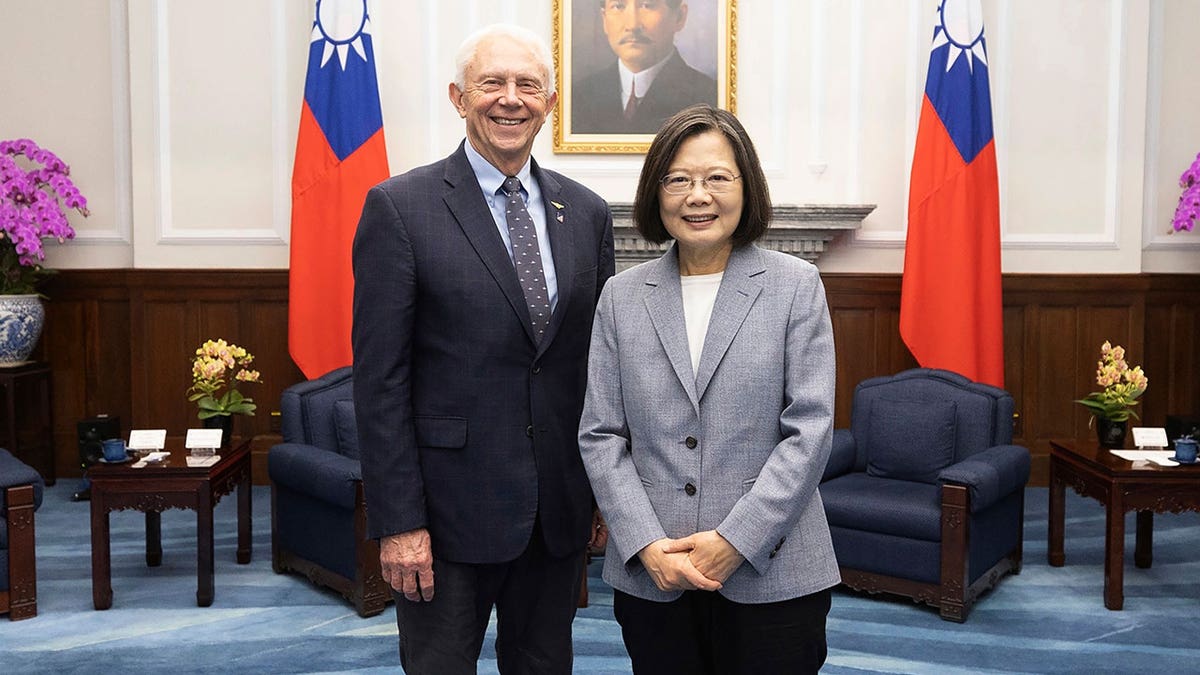America is trying to avoid ‘World War III’ by getting involved with Taiwan: Rep. Ami Bera
Rep. Ami Bera, D-Calif., reacts to the U.S.’s decision to pause funding for the UNRWA and reports on his recent visit to Taiwan on ‘Fox News Live.’
- A bipartisan U.S. congressional delegation has pledged continued support for Taiwan following the recent approval of $300 million in military aid.
- Congress views Taiwan as a strategic ally, despite not officially recognizing it as a country.
- Rep. Jack Bergman led the delegation, voicing the importance of the Taiwan-U.S. partnership in regional security.
A bipartisan U.S. congressional delegation pledged continued support for Taiwan on Thursday, days after Congress approved $300 million in military aid for the self-governed island that’s claimed by China.
Congress also approved $400 million on Saturday to counter the Chinese government’s influence in the region, as part of its Defense Appropriations Act.
China regards Taiwan as a breakaway province to be brought under its control, by force if necessary. Beijing sends warships and fighter jets near the island daily, as it ramps up its military pressure.
The United States, like most nations, doesn’t recognize Taiwan as a country. However, it is bound by U.S. laws to ensure the island can defend itself and considers all threats to Taiwan as a matter of "grave concern."

Taiwan's President Tsai Ing-wen, right, poses for photos with Rep. Jack Bergman on March 28, 2024, in Taipei, Taiwan. Bergman leads a bipartisan U.S. congressional delegation that pledged continued support for Taiwan on Thursday, days after Congress approved $300 million in military aid for the self-governed island that's claimed by China. (Taiwan Presidential Office via AP)
The delegation led by Rep. Jack Bergman, who chairs the House Intelligence and Special Operations Subcommittee, sought to reassure Taiwan’s leadership of continued support.
"We will continue to assure our colleagues that the strategic relationship is key for the future security of the region," Bergman said during a meeting with Taiwanese President Tsai Ing-wen.
"This includes a strong Taiwan maritime strategy and how we can work together on shared goals to counter China on their increasingly aggressive actions in the region," the Michigan Republican said.
Tsai thanked the Biden administration and Congress for helping to bolster Taiwan’s self-defense.
"This support will continue to strengthen the Taiwan-U.S. partnership," she said.
In Beijing, a Defense Ministry spokesperson said China firmly opposes U.S. arms sales to what he called China's Taiwan region.
"We strongly demand that the U.S. side abide by the one-China principle, refrain from undermining China’s sovereignty and security interests, and not interfere in China’s internal affairs," Senior Col. Wu Qian said at a monthly briefing.
The U.S. delegation also includes Democratic Reps. Donald Norcross from New Jersey and Jimmy Panetta from California. The lawmakers arrived in Taiwan on Wednesday and are to stay until Friday.
CLICK HERE TO GET THE FOX NEWS APP
They also met with Taiwanese Vice President and President-elect William Lai and with Vice President-elect Bi-khim Hsiao. Taiwan’s new administration takes office on May 20.
China prohibits countries it has diplomatic relations with from having formal exchanges with Taipei and regularly criticizes U.S. officials’ visits to the island.
A trip by then-House Speaker Nancy Pelosi to Taiwan in 2022 resulted in China dispatching warships and military aircraft around the island and freezing a series of exchanges, including military communications, with the U.S.
Beijing and Washington restored military-to-military contacts after a flurry of diplomatic exchanges in recent months culminated in a meeting between the country’s presidents in San Francisco in November.
Taiwan has expressed concern in recent months about China’s expansion of military bases near the island but says it wants to avoid an escalation in tensions with Beijing.














































